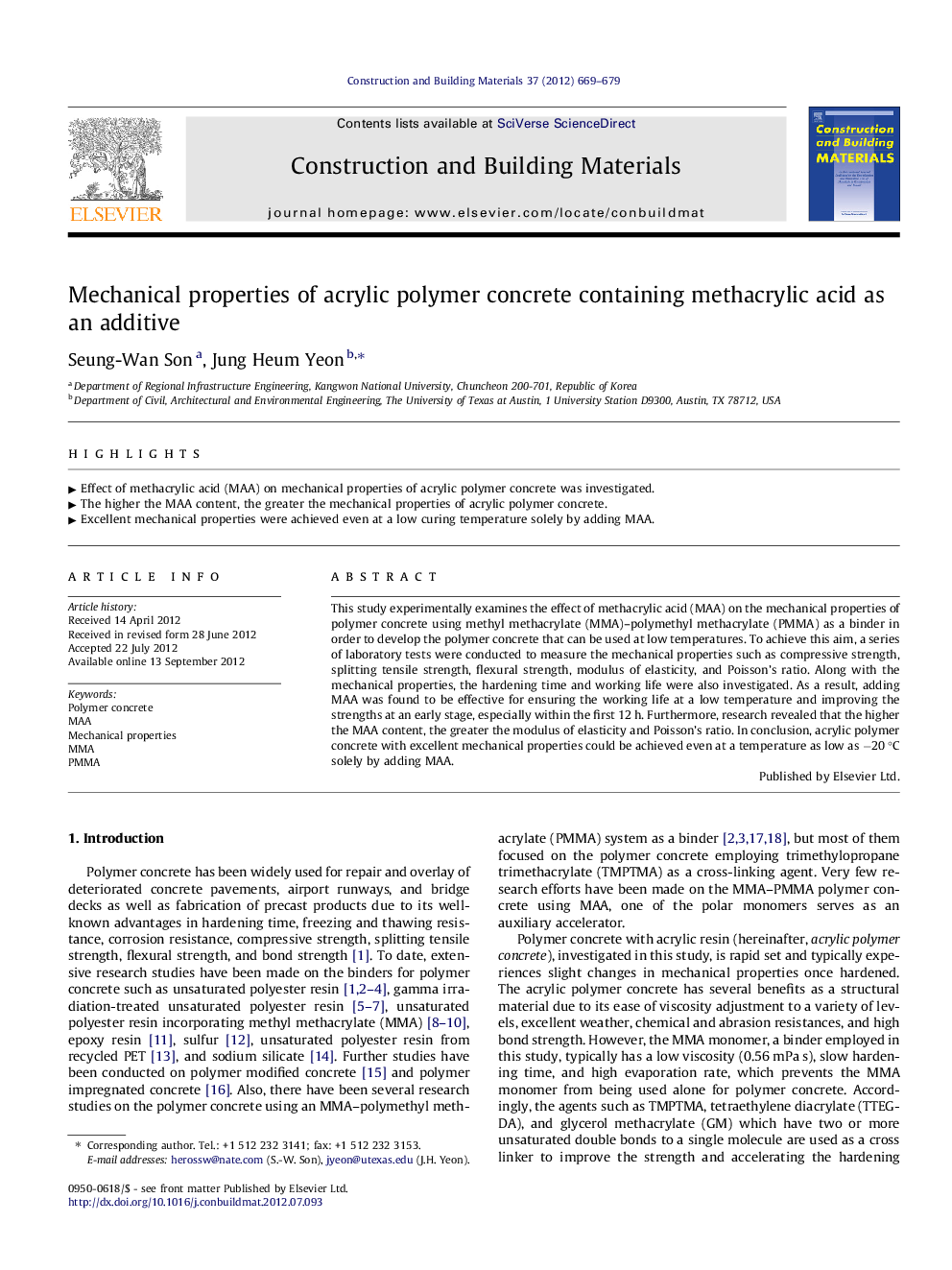| Article ID | Journal | Published Year | Pages | File Type |
|---|---|---|---|---|
| 258766 | Construction and Building Materials | 2012 | 11 Pages |
This study experimentally examines the effect of methacrylic acid (MAA) on the mechanical properties of polymer concrete using methyl methacrylate (MMA)–polymethyl methacrylate (PMMA) as a binder in order to develop the polymer concrete that can be used at low temperatures. To achieve this aim, a series of laboratory tests were conducted to measure the mechanical properties such as compressive strength, splitting tensile strength, flexural strength, modulus of elasticity, and Poisson’s ratio. Along with the mechanical properties, the hardening time and working life were also investigated. As a result, adding MAA was found to be effective for ensuring the working life at a low temperature and improving the strengths at an early stage, especially within the first 12 h. Furthermore, research revealed that the higher the MAA content, the greater the modulus of elasticity and Poisson’s ratio. In conclusion, acrylic polymer concrete with excellent mechanical properties could be achieved even at a temperature as low as −20 °C solely by adding MAA.
► Effect of methacrylic acid (MAA) on mechanical properties of acrylic polymer concrete was investigated. ► The higher the MAA content, the greater the mechanical properties of acrylic polymer concrete. ► Excellent mechanical properties were achieved even at a low curing temperature solely by adding MAA.
